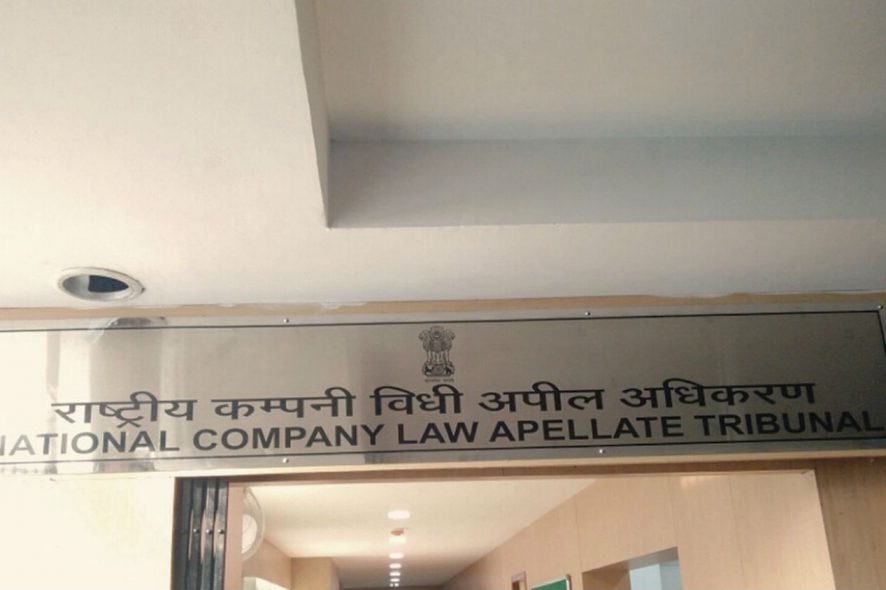SUPREME COURT ALERT
This NCLAT Order has been set aside by the Supreme Court, the detailed report of which can be found at the end of this piece.
National Company Law Appellate Tribunal (NCLAT): The Coram of Justice Bansi Lal Bhat (Judicial Member), V.P. Singh and Shreesha Merla, Technical Members, addressed a grievance with regard to the appointment of Resolution Professional.
Independent Umpire?
Ex-employee of Financial Creditor appointed as Resolution Professional | NCLT’s position
State Bank of India (Financial Creditor) had filed an application under Section 7 of the Insolvency and Bankruptcy Code, 2016 with regard to initiation of Corporate Insolvency Resolution Process before the National Company Law Tribunal, Delhi.
NCLT on noting the objection regarding the proposed ‘Interim Resolution Professional’ — Shailesh Verma directed the Financial Creditor to perform it’s statutorily mandatory obligation by substituting the name of the ‘Resolution Professional’ to act as an ‘Interim Resolution Professional’ in place of Shailesh Verma as it was of the view that Shailesh Verma having worked with the State Bank of India for 39 years before his retirement in 2016, there was an apprehension of bias and was unlikely to act fairly and could not be expected to act as an Independent Umpire.
No disqualification
Aggrieved with the above position, Financial Creditor preferred the instant appeal on the ground that the proposed ‘Interim Resolution Professional’ Shailesh Verma fulfils the requirement for appointment as ‘Interim Resolution Professional’/ ‘Resolution Professional’ under the ‘I&B Code’ and admittedly bears no disqualification.
Question for Consideration
Whether an ex-employee of the ‘Financial Creditor’ having rendered services in the past, should not be permitted to act as ‘Interim Resolution Professional’ at the instance of such ‘Financial Creditor’, regard being had to the nature of duties to be performed by the ‘Interim Resolution Professional’ and the ‘Resolution Professional’?
Analysis
Regulation 3(1) of the Insolvency and Bankruptcy Board of India (Insolvency Resolution Process for Corporate Persons) Regulations, 2016 provides that an Insolvency Professional shall be eligible for appointment as a ‘Resolution Professional’ for the ‘Corporate Insolvency Resolution Process’ of a ‘Corporate Debtor’ if he or his partners and directors of the Insolvency Professional Entity are independent of the ‘Corporate Debtor’.
In view of the above-stated regulation, Mr Shailesh Verma came under the ambit of a qualified Insolvency Professional and neither he nor any of his associates were alleged to be connected with the ‘Corporate Debtor’ in a manner rendering him ineligible to act as a ‘Resolution Professional’.
Tribunal referred to the Supreme Court’s decision in Ranjit Thakur v. Union of India, (1987) 4 SCC 611, wherein following was held:
“17. As to the tests of the likelihood of bias what is relevant is the reasonableness of the apprehension in that regard in the mind of the party. The proper approach for the judge is not to look at his own mind and ask himself, however, honestly, “Am I Biased?”; but to look at the mind of the party before him.”
Tribunal’s Opinion
Coram on considering the given set of circumstances opined that the apprehension of bias expressed by the ‘Corporate Debtor’ qua the appointment of Shailesh Verma as proposed ‘Interim Resolution Professional’ at the instance of the Appellant — ‘Financial Creditor’ cannot be dismissed offhand and the Adjudicating Authority was perfectly justified in seeking his substitution.
The said position was notwithstanding the fact that Mr Shailesh Verma was not disqualified or ineligible to act as an ‘Interim Resolution Professional’.
Hence, no legal flaw in the impugned order of NCLT was found. [State Bank of India v. Metenere Ltd., Company Appeal (AT) (Insolvency) No. 76 of 2020, decided on 22-05-2020]
Supreme Court Alert
Supreme Court: The 3-Judge Bench of Arun Mishra, B.R. Gavai and Krishna Murari, JJ., set aside the NCLAT’s Order with regard to the appointment of Resolution Professional.
In the above background, Bench observed at the outset that NCLAT’s approach was not correct that merely Resolution Professional who remained in the service of SBI and is getting pension, was disentitled to be Resolution Professional.
Solicitor General, Tushar Mehta as well as Senior Counsel, Krishnan Venugopal agreed for the appointment of new Resolution Professional by NCLT.
Hence, the Bench held that new Resolution Professional be appointed by the NCLT in accordance with the provisions of the Insolvency and Bankruptcy Code, 2016.
While concluding the order, Court observed that the change of Resolution Professional shall not reflect adversely upon the integrity of Resolution Professional concerned, who has been replaced.
Since the impugned order does not reflect the correct approach, the same shall not be treated as a precedent.[State Bank of India v. Metenere, 2020 SCC OnLine SC 837, decided on 19-08-2020]







NCLAT’S decoder in SBI Vs Metenre, barring appointment of ex Employees of FCs as IRP/RP has been set aside by SC in their order dated 25th August’20 while disposing of an appeal filed by SBI. The SC held that NCLAT order restricting Ex Employees regarding the nature of duty to be performed by IRP/RP doesn’t reflect correct approach and same shall not be treated as precedent.
It is advisable that such outdated and misleading reports are not put in public domain.
Thank you. We have updated the report as per the Supreme Court’s order dated 19-08-2020.